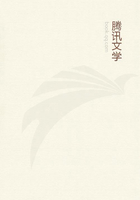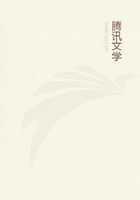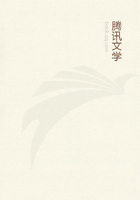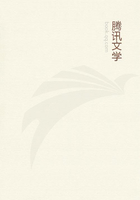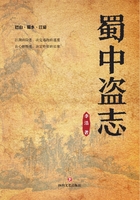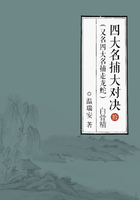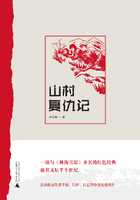But, though the letters from women naturally interested me the most, they were only a certain proportion of the great mass of correspondence which I turned over. There were letters from Carlo Angiolini, who was afterwards to bring the manuscript of the Memoirs to Brockhaus; from Balbi, the monk with whom Casanova escaped from the Piombi; from the Marquis Albergati, playwright, actor, and eccentric, of whom there is some account in the Memoirs; from the Marquis Mosca, 'a distinguished man of letters whom I was anxious to see,' Casanova tells us in the same volume in which he describes his visit to the Moscas at Pesaro; from Zulian, brother of the Duchess of Fiano; from Richard Lorrain, 'bel homme, ayant de l'esprit, le ton et le gout de la bonne societe', who came to settle at Gorizia in 1773, while Casanova was there; from the Procurator Morosini, whom he speaks of in the Memoirs as his 'protector,' and as one of those through whom he obtained permission to return to Venice. His other 'protector,' the 'avogador' Zaguri, had, says Casanova, 'since the affair of the Marquis Albergati, carried on a most interesting correspondence with me'; and in fact I found a bundle of no less than a hundred and thirty-eight letters from him, dating from 1784 to 1798. Another bundle contains one hundred and seventy-two letters from Count Lamberg. In the Memoirs Casanova says, referring to his visit to Augsburg at the end of 1761:
I used to spend my evenings in a very agreeable manner at the house of Count Max de Lamberg, who resided at the court of the Prince-Bishop with the title of Grand Marshal. What particularly attached me to Count Lamberg was his literary talent. A first-rate scholar, learned to a degree, he has published several much esteemed works. I carried on an exchange of letters with him which ended only with his death four years ago in 1792.
Casanova tells us that, at his second visit to Augsburg in the early part of 1767, he 'supped with Count Lamberg two or three times a week,' during the four months he was there. It is with this year that the letters I have found begin: they end with the year of his death, 1792. In his 'Memorial d'un Mondain' Lamberg refers to Casanova as 'a man known in literature, a man of profound knowledge.'
In the first edition of 1774, he laments that 'a man such as M. de S.
Galt' should not yet have been taken back into favour by the Venetian government, and in the second edition, 1775, rejoices over Casanova's return to Venice. Then there are letters from Da Ponte, who tells the story of Casanova's curious relations with Mme. d'Urfe, in his 'Memorie scritte da esso', 1829; from Pittoni, Bono, and others mentioned in different parts of the Memoirs, and from some dozen others who are not mentioned in them. The only letters in the whole collection that have been published are those from the Prince de Ligne and from Count Koenig.
IV
Casanova tells us in his Memoirs that, during his later years at Dux, he had only been able to 'hinder black melancholy from devouring his poor existence, or sending him out of his mind,' by writing ten or twelve hours a day. The copious manuscripts at Dux show us how persistently he was at work on a singular variety of subjects, in addition to the Memoirs, and to the various books which he published during those years. We see him jotting down everything that comes into his head, for his own amusement, and certainly without any thought of publication; engaging in learned controversies, writing treatises on abstruse mathematical problems, composing comedies to be acted before Count Waldstein's neighbours, practising verse-writing in two languages, indeed with more patience than success, writing philosophical dialogues in which God and himself are the speakers, and keeping up an extensive correspondence, both with distinguished men and with delightful women. His mental activity, up to the age of seventy-three, is as prodigious as the activity which he had expended in living a multiform and incalculable life. As in life everything living had interested him so in his retirement from life every idea makes its separate appeal to him; and he welcomes ideas with the same impartiality with which he had welcomed adventures. Passion has intellectualised itself, and remains not less passionate. He wishes to do everything, to compete with every one; and it is only after having spent seven years in heaping up miscellaneous learning, and exercising his faculties in many directions, that he turns to look back over his own past life, and to live it over again in memory, as he writes down the narrative of what had interested him most in it.
'I write in the hope that my history will never see the broad day light of publication,' he tells us, scarcely meaning it, we may be sure, even in the moment of hesitancy which may naturally come to him. But if ever a book was written for the pleasure of writing it, it was this one; and an autobiography written for oneself is not likely to be anything but frank.
'Truth is the only God I have ever adored,' he tells us: and we now know how truthful he was in saying so. I have only summarised in this article the most important confirmations of his exact accuracy in facts and dates; the number could be extended indefinitely. In the manuscripts we find innumerable further confirmations; and their chief value as testimony is that they tell us nothing which we should not have already known, if we had merely taken Casanova at his word.
But it is not always easy to take people at their own word, when they are writing about themselves; and the world has been very loth to believe in Casanova as he represents himself. It has been specially loth to believe that he is telling the truth when he tells us about his adventures with women. But the letters contained among these manuscripts shows us the women of Casanova writing to him with all the fervour and all the fidelity which he attributes to them; and they show him to us in the character of as fervid and faithful a lover. In every fact, every detail, and in the whole mental impression which they convey, these manuscripts bring before us the Casanova of the Memoirs. As I seemed to come upon Casanova at home, it was as if I came upon old friend, already perfectly known to me, before I had made my pilgrimage to Dux.
1902

